Some customers might feel lazy to send a separate email when new questions arise, so they continue correspondence in the old chain. What is "convenience" for them in such instances is clear, but messages like that reopen closed cases, causing problems for support agents. For example:
a) Such emails are in fact new questions, but they are not processed by the rules for new cases, since the emails are received as customer responses, so they can't get into the right group, get the right priority, etc;
b) If the case was initially closed on time (in accordance with the SLA), then when a new message is received from the customer after a week or two, the closing SLA instantly becomes overdue, which distorts the real picture.
c) When a new response is received, the reopened case is no longer counted in the statistics of closed cases until the agent closes it again.
All problems can now be solved with the new action in the rules for updated cases — "Create new case based on the response". When using it:
the initial case remains "Closed";
a new message separation record is added to the initial and new cases ;
the new case is checked by the rules for new cases.
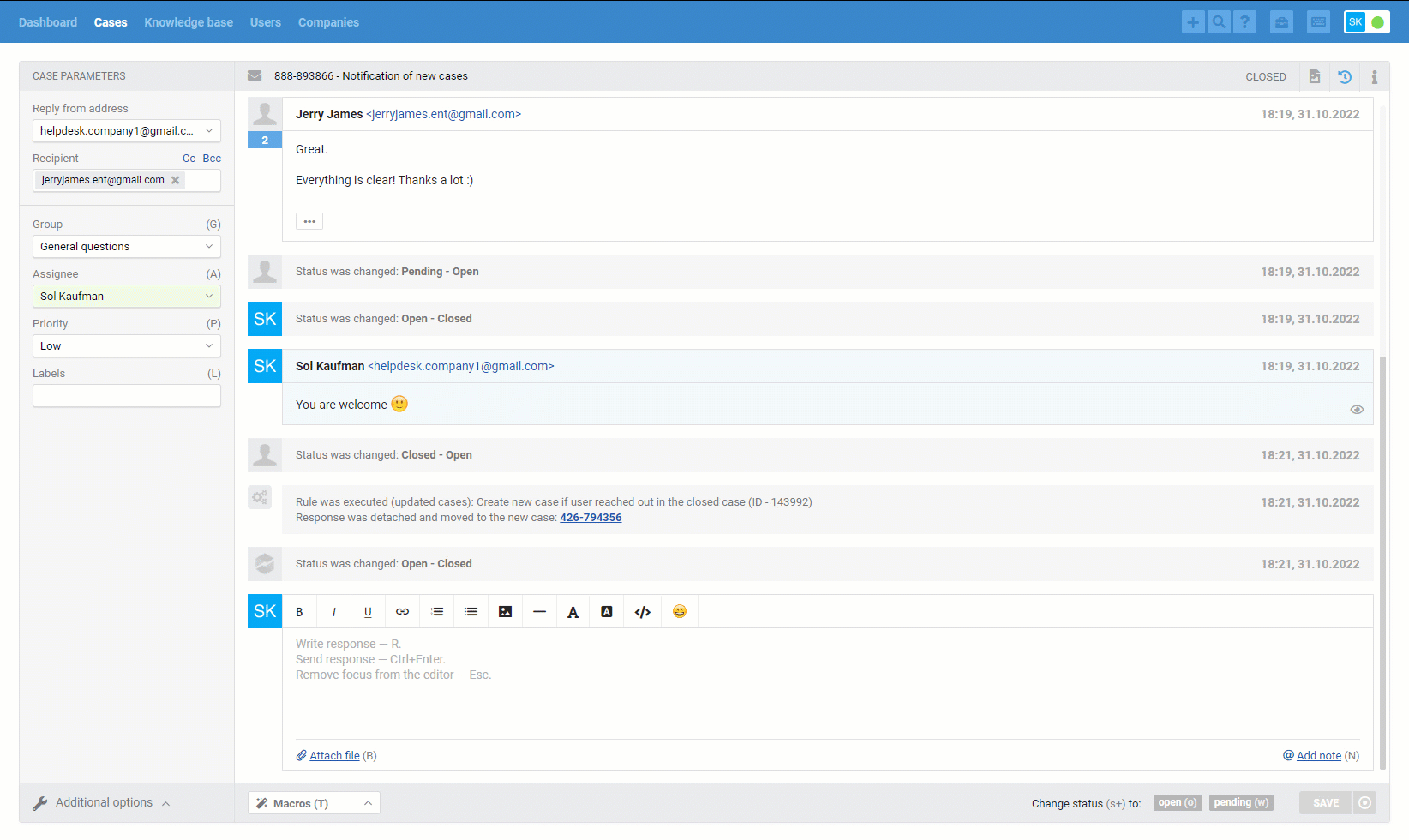
Let's take a look at a couple of rule examples with a new action.
1. All new messages in "closed" cases are detached and moved to new cases.
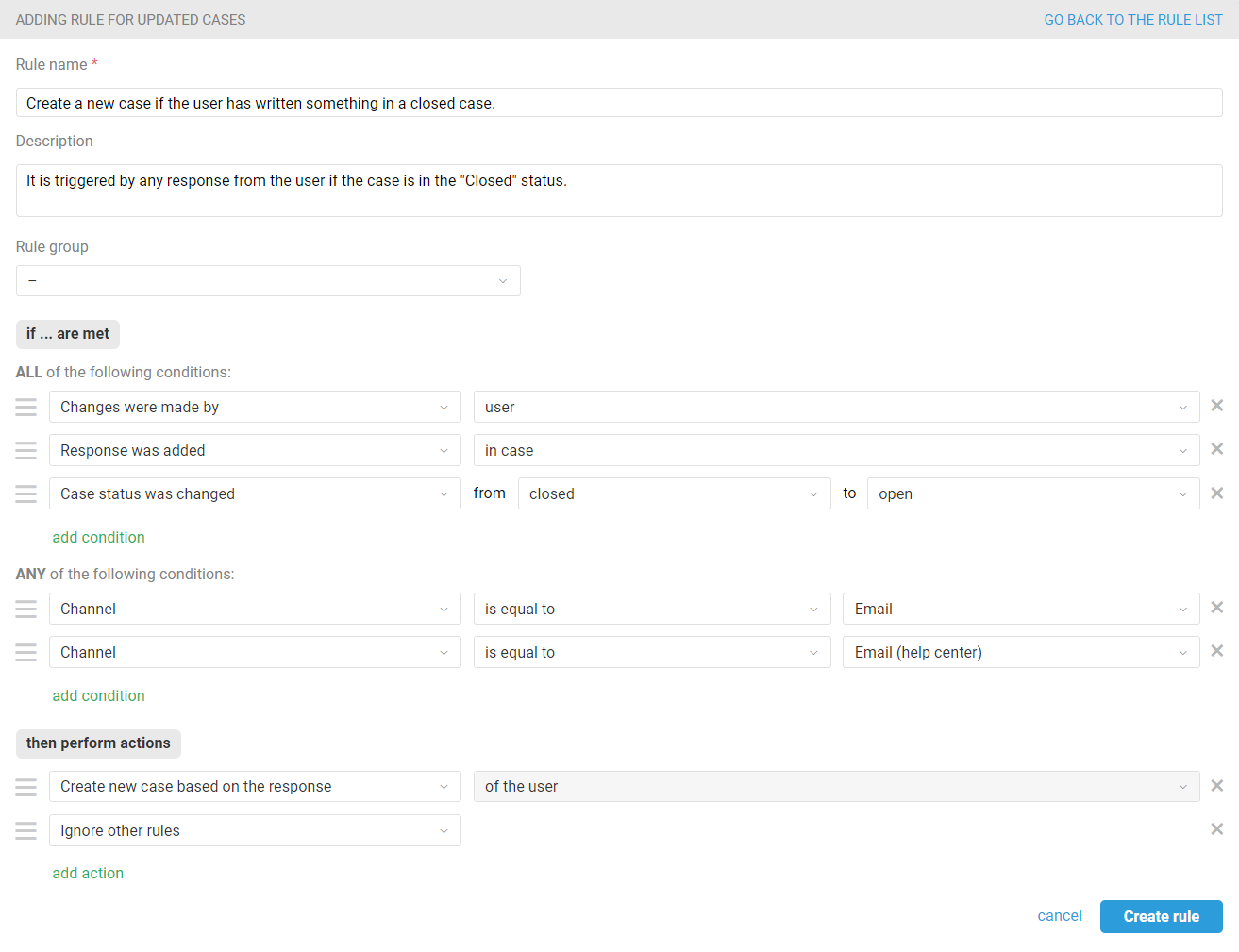
This option is convenient if the case gets the "closed" status after the customer's issue is definitely resolved and there is no need for any further correspondence.
2. New messages in closed cases are detached and moved into new cases only if enough time has passed since closing. This option is implemented using a combination of the rule for existing cases, which adds a label a few days after closing, and the rule for updated cases, that detaches and moves new responses to a new case if the closed case has a corresponding label.
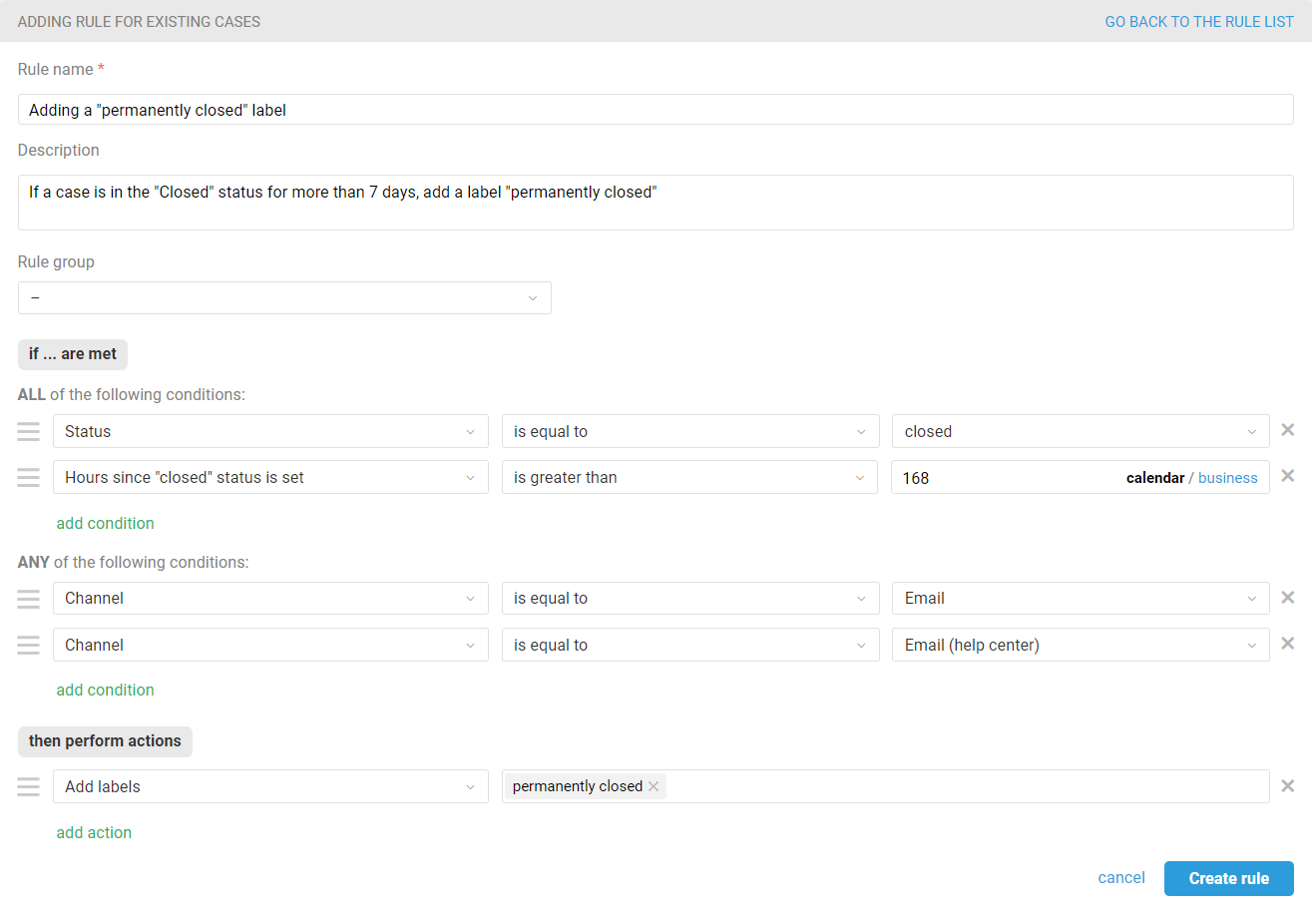
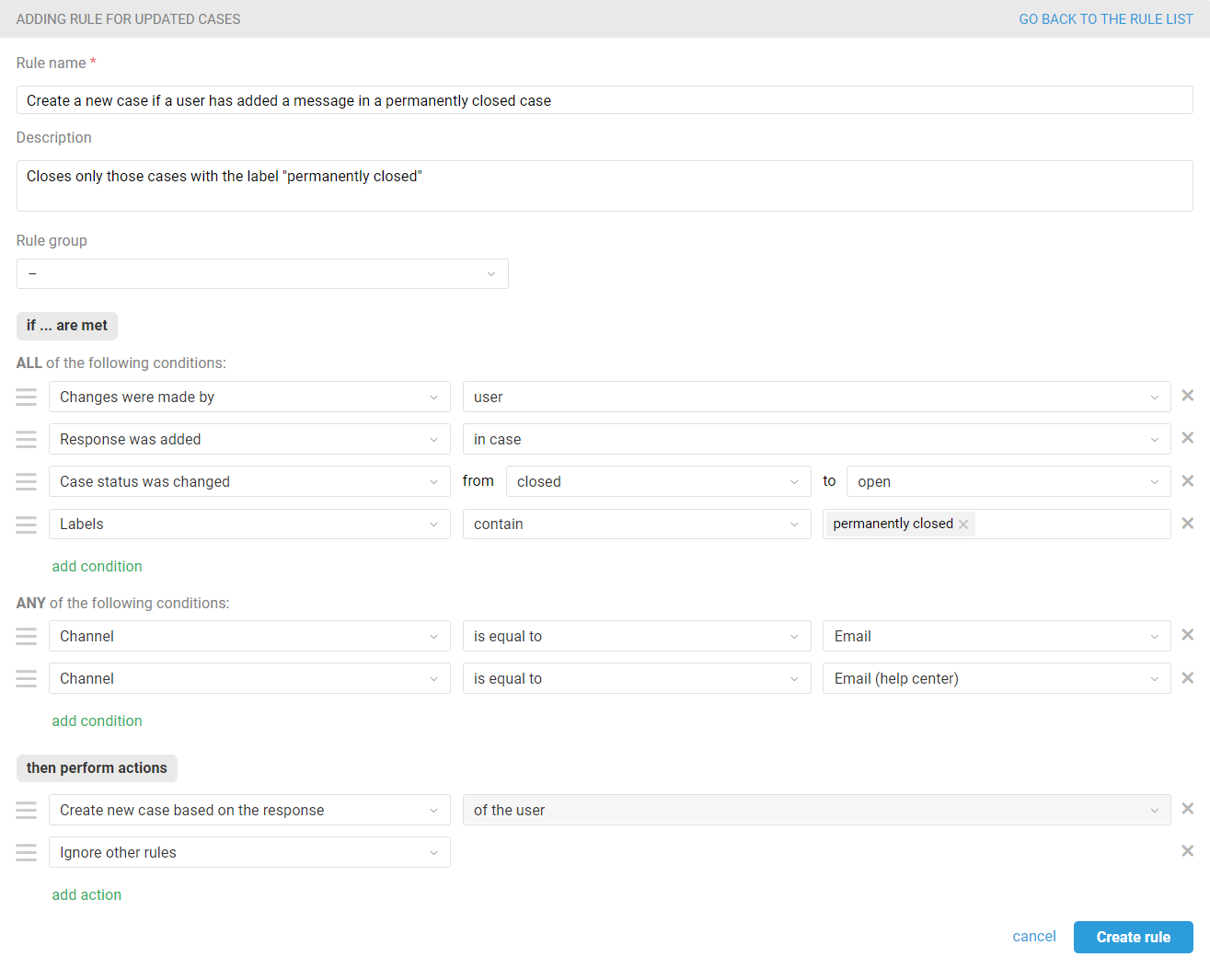
This option allows you to eliminate situations where the case is closed by an agent, but the customer still has clarifying questions, and then contacts you in a few days.
Please note
1) Created rules for modified cases must contain the "Ignore other rules" action and be in first place in the list of rules.
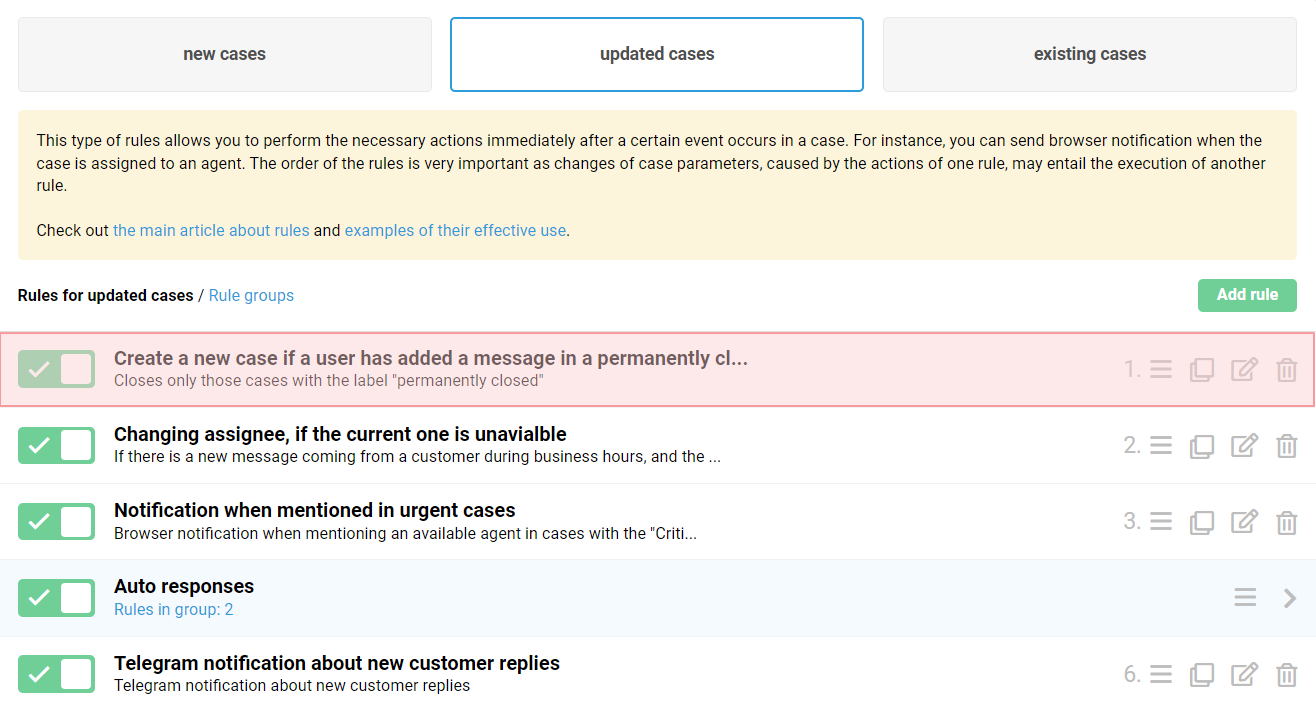
Otherwise, other rules for updated cases are executed first in a "closed" case, which can only hinder the workflow.
2) The "Create new case based on the response" action is performed only for the Email, Email (help center) and custom asynchronous channels, since there is specific logic for separating chats into different cases.
